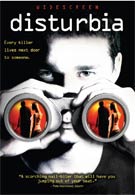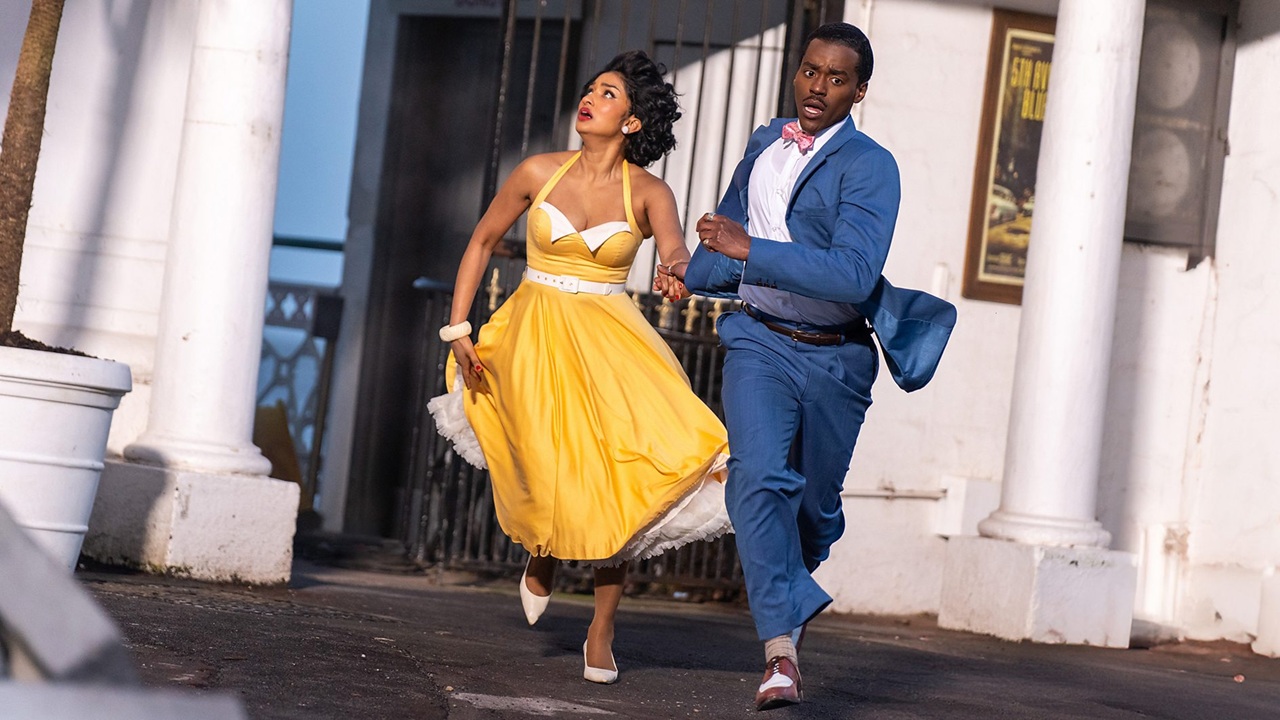There is a key moment in the climax of Disturbia where Shia LaBeouf’s character, Kale, walks down a shadowy corridor as a thunderstorm wreaks havoc outdoors. As he passes by a large window, a flash of lightning momentarily reveals the killer to be hiding on the other side of the window. But, just in case the audience didn’t catch this subtle moment of artistic beauty, the picture cuts to a close up of the killer as the lightning continues to flash. That’s a pretty representative example of Disturbia as a whole, a movie that’s more concerned with making sure the audience is up to speed than maintaining a decent plot speed, thereby losing any hope of real suspense or thrills. Watching Shia LaBeouf evolve and grow as an actor has been a real pleasure for me. I have to admit I enjoyed his childhood role on “Even Stevens” and, while I’d much rather see the series’s Christy Carlson-Romano in more challenging roles, Shia was half that show’s draw. Since then most of LaBeouf’s characters have been similar to Louis Stevens – fast talking (although not as fast thinking), sarcastic characters who are generally so good it makes viewer’s teeth hurt (see: Transformers).
Thankfully, LaBeouf breaks out of that model with Disturbia. Here his character maintains an underlying aggression, tied to the death of his father in the first part of the movie. Kale and his dad enjoy a day of fishing and father-son bonding, but on the drive home they are in a horrific accident and Kale’s dad dies. A year later the boy still hasn’t come to grips with the death, visible in his declining grades and a waning relationship with his mother. When a teacher pushes Kale, he punches back, landing him with a Martha Stewart prison sentence: house arrest. With nothing else to do, Kale begins to take surveillance of his neighborhood, developing an interest in the new girl next door, and a suspicion of the neighbor on the other side, who bears a resemblance to recent reports of a potential serial killer.
For his part, Shia provides a convincing portrayal of a teenage kid angry with the hand life has dealt him. The anger isn’t overt, but it’s almost always present; presented like a skillful actor. Kale is a better thinker than other characters, looking at things a little more logically and having plenty of time to think things through. There are a few instances of LaBeouf breaking into his trademark speech pattern, trying to quick talk things, but for the most part they are absent and this is a solid new character type for LaBeouf.
Comparisons are inevitable to Rear Window, the Hitchcock classic that also involves a homebound voyeur discovering a murderer in his midst. The truth is, the two couldn’t be more different while still sharing that plot device. Rear Window is filled with a tangible suspense throughout most of the picture, something that is almost wholly absent here. Instead the first half of Disturbia is spent developing the relationship between Kale and new neighbor Ashley (Sarah Roemer) – a much more attractive subject for Kale’s neighborhood spying. The relationship removes almost all of the threat of the murderer plot for a sizable part of the movie.
Once the murderer plot gets going, the movie starts to deter from its own setup. Completely a third-person narrative fixed on Kale, the movie starts to show the audience things Kale can’t see in order to better set up the suspense. It’s an incredibly disappointing move that removes any suspense that had built by that time. What good is keeping Kale homebound and telling the movie through his voyeurism if the narrative is suddenly going to let the audience in on things he doesn’t know? Now with the audience more aware than its protagonist, the movie does its best to wrap things up as quickly as possible. I’m sure director D.J. Caruso thought that would help keep the suspense level up, but good suspense can be held for ages (or at least what feels like it) if created properly.
Although Disturbia shows some growth for Shia LaBeouf as an actor, its nowhere near the picture it could have been. It’s an enjoyable little tale, but there isn’t much that passes for thrills or suspense to be found other than the artificial jump moments so popular in teenage thrillers these days. Attempting to be something better, Disturbia just isn’t that disturbing. At first appearance the DVD release for Disturbia appears to be pretty loaded. Actually looking at the included materials, it becomes obvious pretty quickly that the disc is just as average as the movie found on it. Everything included is pretty standard fare; not much that disappoints but nothing out of the ordinary.
There are two enhances options for watching the DVD. The first is the fairly-standard commentary from director D.J. Caruso, Shia LaBeouf, and Sarah Roemer. The second is a pop-up trivia track, which is listed as a “pop-up quiz” but really doesn’t have anything to do with a quiz. I found the pop-up trivia to be a bit distracting. While I’m used to watching movies with that kind of track, the text appears on an odd image. While I can only guess it’s supposed to be a heart with a silhouette of a suburban skyline on it, the top of the image looks like a pair of butt-cheeks, and I’m not even that filthy minded. I just couldn’t help but think of this mooning image every time some neat little fact popped up, distracting me from enjoying the film itself.
There are five deleted scenes all of which are rather unimpressive. If there was an accompanying commentary, I’m sure we would be told the information was cut “for pacing.” Since the pacing of the film doesn’t help the suspense anyway, I’m not sure that’s a good justification for deleting these few moments. At the same time, they aren’t that memorable, so I guess it doesn’t matter. There is also about a minute and a half of outtakes – far shorter than I was expecting considering LaBeouf’s typical demeanor in a film. The few outtakes do center primarily around him, and I’m guessing there weren’t more since the next-door actor David Morse was notably method in his work, not really talking to the younger actors on set at all.
“The Making of Disturbia” is your pretty common behind the scenes documentaries. Without diving too deep into any particular subject, the featurette interviews some of the key players (Caruso and LeBeouf mostly) about the approach and ideas behind the film. Caruso has some interesting ideas about portraying voyeurism in a modern environment, especially with how technology has developed. Most of what he talks about in the featurette I took for granted in the movie, so it was interesting to hear him specifically aware of what he was doing. I guarantee that there would have been complaining if he hadn’t been so aware.
The DVD case lists all of the extras I’ve mentioned above, as well as a music video for This World Fair’s “Don’t Make Me Wait,” a photo gallery, “and more.” It turns out the “and more” is just the movie’s theatrical trailer and some previews for some other DreamWorks titles coming soon. That hardly counts as “more,” although the trailer did clarify something I had misinterpreted about the film’s ad campaign, so having that is, as always, a handy thing.
The DVD for Disturbia is lukewarm at best. There’s nothing truly special about this, just like there’s nothing truly special about the movie. You’ll probably enjoy this DVD release, but there’s nothing that will drag you back to watch it again and again. A mediocre release for a mediocre movie.
How To Watch Doctor Who Season 15 Online And Stream Every Episode For Free From Anywhere
Suits’ Gabriel Macht Explained Why He Agreed To Reprise Harvey Specter For The LA Spinoff, But Now I’m Also Concerned About His Future With The Show
Fans Are All Over Lois Lane And Superman Kissing In The Air, But David Corenswet Warns 'It Feels Less Romantic' To Actually Film It











